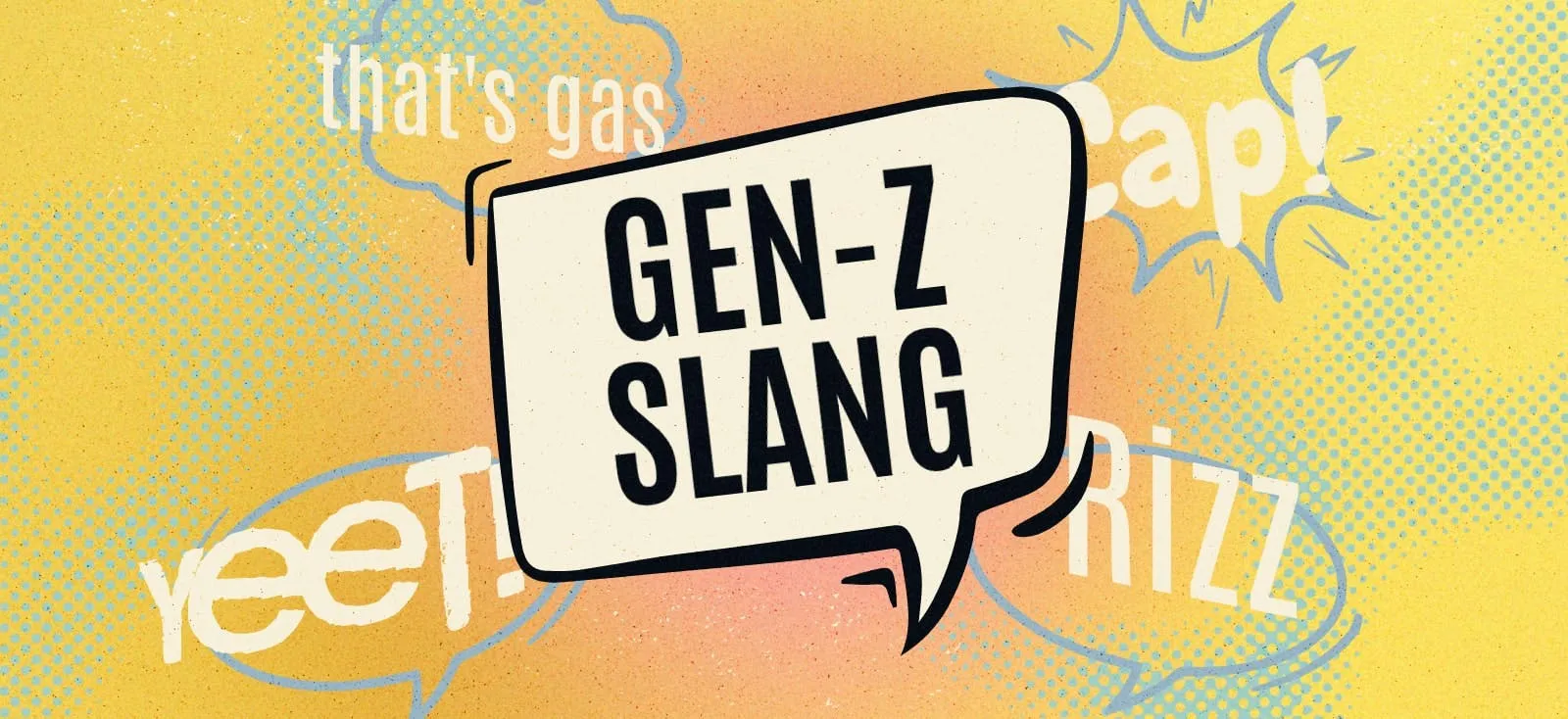If you’ve ever heard someone say, “That’s a flex!” or “She’s got mad rizz,” and felt like you missed the memo — you’re not alone. Gen Z, born between 1997 and 2012, has reshaped language with their unique slang that thrives on social media, memes, and viral trends. But is learning Gen Z slang just a passing trend, or is it actually useful? Let’s dive in and decode this cultural phenomenon.
What is Gen Z Slang and Why Does It Matter?
Gen Z slang is a dynamic blend of internet memes, pop culture, and digital conversations that constantly evolve. Unlike traditional language, these phrases reflect current events, humor, and societal trends, making them a living, breathing form of expression.
Why It’s Worth Learning:
- Bridges Generational Gaps: Understanding their slang helps break down barriers between different age groups.
- Enhances Digital Communication: If you’re interacting with Gen Z online, using their lingo helps you stay relevant and relatable.
- Valuable for Brands and Marketers: Brands that adopt Gen Z phrases effectively can engage with younger audiences authentically.
Origins of Gen Z Slang: Where Does It Come From?
Gen Z slang didn’t just appear out of nowhere — it has roots in pop culture, internet humor, and diverse communities.
1. Social Media Platforms
- TikTok: The birthplace of viral challenges and slang. Terms like “rizz” and “it’s giving” gained popularity here.
- Twitter/X: Short, witty phrases spread like wildfire, creating new trends in real-time.
- Instagram & Snapchat: Used to showcase lifestyle trends, often blending slang with visual storytelling.
2. Pop Culture and Music
- Rappers like Drake and Lil Nas X influence slang that quickly becomes part of Gen Z’s vocabulary.
- TV shows like Euphoria and Stranger Things introduce phrases that resonate with younger audiences.
3. Meme Culture and Internet Humor
- Memes create an emotional connection, leading to phrases that stick.
- Viral trends like “sheesh” or “vibe check” often come from meme culture.
Top 20 Gen Z Slang Words and Their Meanings (with Examples)
✅ 1. Slay – Doing something exceptionally well.
👉 “She slayed that presentation!”
✅ 2. No Cap – Being truthful or serious.
👉 “That movie was amazing, no cap!”
✅ 3. Bet – Agreement or confirmation.
👉 “You coming to the party?” — “Bet!”
✅ 4. Sus – Suspicious or questionable behavior.
👉 “Why is he avoiding my texts? That’s sus.”
✅ 5. Rizz – Charismatic charm, often related to flirting.
👉 “He’s got mad rizz with the ladies.”
✅ 6. Yeet – Throwing something with force or enthusiasm.
👉 “I yeeted my bag across the room.”
✅ 7. Mid – Average or unimpressive.
👉 “That new season was kinda mid.”
✅ 8. It’s Giving… – Describing the vibe or impression of something.
👉 “It’s giving main character energy.”
✅ 9. Ghosting – Abruptly cutting off communication.
👉 “He ghosted me after our first date.”
✅ 10. Vibe Check – Assessing the mood or energy of a situation.
👉 “Vibe check: Are we still down for the movies?”
✅ 11. Flex – Showing off or bragging.
👉 “Posting that vacation pic is such a flex.”
✅ 12. Hits Different – When something feels uniquely better than usual.
👉 “Pizza at 2 AM just hits different.”
✅ 13. Stan – Being a superfan or admirer.
👉 “I stan Taylor Swift all day!”
✅ 14. Main Character Energy – Acting like the star of one’s own life.
👉 “She’s giving main character energy today.”
✅ 15. I’m Dead / I’m Weak – Laughing uncontrollably.
👉 “That meme had me dead!”
✅ 16. Simp – Showing excessive attention to someone, often romantically.
👉 “He’s simping over her again.”
✅ 17. Bussin’ – Describing something really good or tasty.
👉 “This pizza is bussin’!”
✅ 18. Lit – Something that’s exciting or fun.
👉 “The party last night was lit!”
✅ 19. Ratioed – When a post gets more negative responses than likes.
👉 “He got ratioed for that tweet.”
✅ 20. Glow Up – A remarkable transformation, often in appearance.
👉 “Her glow up after high school is unreal!”
Gen Z Abbreviations and Shortcuts You Should Know
✅ TBH – To Be Honest
👉 “TBH, I’m not feeling this new show.”
✅ LOL – Laugh Out Loud
👉 “That joke was hilarious, LOL!”
✅ FR – For Real
👉 “You’re coming to the concert, FR?”
✅ OMG – Oh My God
👉 “OMG, did you see her new outfit?!”
✅ LMK – Let Me Know
👉 “LMK if you’re down for dinner later.”
✅ ICYMI – In Case You Missed It
👉 “ICYMI, the new trailer just dropped!”
✅ IDK – I Don’t Know
👉 “IDK if I’ll be able to make it tonight.”
✅ BTW – By The Way
👉 “BTW, did you finish that project?”
✅ FTW – For The Win
👉 “Pizza night, FTW!”
✅ BRB – Be Right Back
👉 “BRB, grabbing a snack.”
Why Do Gen Z Phrases Evolve So Fast?
Unlike older generations who communicated primarily through face-to-face interactions or traditional media, Gen Z lives in a digital ecosystem where trends can go viral overnight. Their slang adapts to:
- Meme Lifecycles: As memes fade, so do associated phrases.
- Viral Challenges: TikTok trends introduce phrases that spread globally.
- Global Influence: Cultural diversity and global conversations shape their slang.
Who Should Learn Gen Z Slang and Why?
- Parents and Educators: To better connect with younger generations and understand their digital world.
- Brands and Marketers: To create authentic, relatable content that resonates with Gen Z.
- Content Creators: To engage with audiences effectively and stay on top of trends.
- Anyone Who Wants to Stay Relevant: If you don’t want to feel “mid” in conversations!
Unnoticed Aspects About Gen Z Slang
1. Language of Inclusivity and Identity
Gen Z slang often embraces inclusivity, reflecting diverse identities and perspectives. Words like “slay” and “it’s giving” empower self-expression and celebrate uniqueness.
2. A Tool for Humor and Irony
Gen Z often uses slang ironically, adding layers of humor. Phrases like “I’m dead” are meant to exaggerate a reaction in a comedic way.
3. Fluidity and Innovation
Unlike older generations, Gen Z adapts language quickly, allowing phrases to morph, gain new meanings, and fade without warning.
The Impact of Gen Z Slang on Communication
- Shortens Conversations: Slang conveys complex emotions in fewer words.
- Enhances Online Identity: Phrases define their online personas and social circles.
- Creates Inside Jokes: Slang acts as a bonding tool, strengthening online communities.
How Brands Can Use Gen Z Slang Without Cringe
If you’re a brand trying to appeal to Gen Z, be cautious. Using slang incorrectly can come off as cringeworthy and do more harm than good.
Best Practices:
- Know the Context: Don’t overuse slang or force it into professional conversations.
- Stay Updated: Language evolves fast — outdated slang can make a brand seem out of touch.
- Use Sparingly: Sprinkle phrases naturally into your content rather than overloading it.
What’s Next? Trends to Watch
As Gen Z continues to innovate and influence, expect new phrases to emerge. Words like “delulu” (delusional but funny) and “ate and left no crumbs” (performed flawlessly) are already gaining traction.
Bonus: Take the Gen Z Slang Quiz!
“How Well Do You Speak Gen Z?”
Challenge yourself with a fun quiz that tests your knowledge of the latest phrases and their meanings.
Final Thoughts: Why Understanding Gen Z Slang is Essential
In a world where digital culture shapes everyday conversations, learning Gen Z slang isn’t just about keeping up — it’s about building connections, fostering inclusivity, and understanding the future of communication. So, whether you’re a parent, a brand, or just someone who wants to vibe with the younger crowd, it’s time to embrace the rizz and slay those conversations!










